Dear Media, Let me help you write that article on YA literature
Recently, there have been a voluminous number of articles written about YA literature. And they are mostly wrong. So if you are a member of the press and given this assignment, I thought I would help you out a little. But first, let me start by telling you why I am, in fact, qualified to help you out. Credentials are important, something these articles always seem to lack.
What It Means to be a YA Librarian
So, this is me: I have been a YA librarian for 20 years. Non stop. Dedicated. There are lots of people like me out there, you should talk to us before you write an article on YA. I started in 1993 as a paraprofessional while in college working on my undergraduate degree with a major in Christian Education/Youth Ministry and a minor in Adolescent Psychology and Development. After graduating I went on to get my Masters in Library Science with an area of specialization in Young Adult Services and Youth Services. I have worked in 4 different libraries as a YA librarian in 2 different states. And I have read well over 2,000 YA novels. In addition, I have read reviews and articles on the topic way more numerous than I could even begin to count or articulate. In fact, I have been professionally writing YA reviews for VOYA magazine for 13 years now. Sometimes I even turn those reviews in on time. There are many more qualified, knowledgeable, dedicated and passionate YA librarians out there. So the next time you have to write an article on YA, please take 30 minutes out of your day and pick up your phone to call your local public library and ask to speak to the YA librarian. In fact, call 3. It’s called research.
ADVERTISEMENT
ADVERTISEMENT
So now that we’ve established that I am somewhat qualified to talk to you about YA lit, let me get a few basics out of the way for you.
YA Lit isn’t so much a genre as it is an age designation
YA literature, or young adult literature, is also called teen fiction. That’s because it is primarily written for teenaged people and it generally features teenaged characters. There is also middle grade fiction (MG lit), for middle grade readers approximately ages 8 to 12 or 13ish. And there is adult fiction. These aren’t so much genres as they are age classifications to let readers know who the target audience is. But it’s not a hard, steadfast rule because teens read MG and Adult fiction and that is a good thing. And adults read MG and YA fiction, and that is a good thing too. In fact, if you are the parent of a teenager, someone who works with teenagers or someone who cares about teenagers, well then I recommend that you occasionally read YA because then you can talk to them about books, or about life. Despite what a lot of people seem to think, the term YA is not a signifier of quality any more than saying a book is written for adults is a signifier of quality. It’s really more of a target audience indicator that assists readers in book selection. Teens like to read about teens for the same reasons that married adults who have children like to read about married adults that have children or sports fans like to read about sports: they can relate to it, they are looking for validation, it interests them because it speaks to where they are at in that particular moment of their life, etc.
Under the umbrella of YA fiction, there is any and every genre
YA fiction is not any one thing. In part because YA readers are not any one thing. A YA novel can be contemporary fiction, it can be a mystery, it can be a romance, it can be a horror novel, it can be fantasy, it can be science fiction, it can be magical realism. It can be any of the many numerous genres out there. In fact, sometimes it is a cross between a couple of genres. For example, it can be a historical fiction novel with paranormal or supernatural elements. And I know this is hard to comprehend, but most people are complex beings who are capable of liking more than one genre at a time. Teens are no different, that is why YA is full of a wide variety of genres.
Yes, sometimes a particular genre will dominate the YA landscape, but this is okay
Yes, sometimes a particular genre may be more popular in the moment, but the other genres don’t magically disappear. And I don’t know why we talk about this phenomenon as if it is unique to YA literature, because it’s not. All of culture goes in cycles. It happens in the movies. It happens on TV. It happens in fashion. It happens on the Internet. It happens in adult fiction. It happens in YA fiction. It happens in MG fiction. It’s basically how culture operates – in trends.
And yes, for a period of time the dominating trend seemed to be vampires. I don’t understand why we talk about this as if it is a bad thing. Vampires are cool. They have been trendy before and they will be trendy again. For some reason when we come to an end of a trend we seem to feel the need to belittle the trend. Maybe it makes us feel good about ourselves, like we were enlightened the whole time and knew better. Like we were so above it all. This too is part of the trend cycle, we like to kick an injured puppy on their way out the door. I think that says more about us as a culture than it really does about the dying trend. You can say what you want about the vampire trend, but it – like all trends – got teens reading. This is a good thing. It’s okay if you don’t like vampire novels. Or dystopians. And it’s okay that other people do. Let’s not disparage the interests of others, it makes the world a better place.
Contemporary Fiction has never not been an important part of YA Lit
Contemporary fiction, also at different points in the past twenty years called things like realistic fiction, edgy fiction, the problem novel, etc, has always been a huge part of YA fiction. Contemporary fiction is often also called realistic fiction because it is set in the current day and time and focuses on the realities that teens face in life. Some of the articles that I have read recently suggest that all of the sudden teens are into contemporary fiction and they attribute John Green with the resurgence of this genre. The truth is, teen readers have always been into contemporary fiction. Some of the most popular authors of contemporary YA include Judy Blume, Chris Crutcher, Sarah Dessen, Ellen Hopkins, Sharon Draper, Nikki Grimes, Walter Dean Myers and so many more. Before you start hailing John Green as the savior of modern day YA fiction, you might want to take a look at the backlist and output of some of the above authors.
Don’t get me wrong, John Green IS very popular. In part because he writes good books. I admit it, I am a fan. But also in part because he is a very smart businessman who was utilizing the Internet in creative ways long before others and built for himself a huge fanbase. John Green’s popularity is about more than just his books. And that’s okay. But for an interesting comparison, ask any YA librarian what author they have to replace the most in their library. 9 times out of 10 YA librarians will respond with Ellen Hopkins. I don’t know what it is, but Hopkins really seems to capture the heart of YA readers and she tends to be one of the most stolen authors in libraries.
My point is this: John Green did not invent or save the contemporary fiction genre. In fact, it has never gone away and it never will. Again, people are complex beings and they often like more than one thing at the same time. This is a good thing.
Yes, there is darkness in YA lit and I don’t understand why this is a bad thing
Some YA lit is very dark. Sometimes I read articles that say all YA is dark, but again – that’s just someone not doing their research. But here’s what I can’t ever figure out: why is darkness in YA lit a bad thing? Let’s think about teens for a moment. By the time teens reach the age of 18, 1 out of 4 girls and 1 out of 6 boys will have been a victim of some type of sexual violence, most often by someone they loved and trusted. 1 out of 5 kids and teens go to bed hungry each night. Soon, the current generation of teens will never have lived in a time when the United States was not actively engaged in a war on foreign soil. Teens today live in a world overshadowed by the events of 9/11, where we stand in lines at the airport to take off our shoes and listen for announcements of what the current color threat level is. Schools today have duck and cover lock down drills where they practice what to do if a shooter comes into their school. They will know someone who has a mental illness (it is suggested that 1 out 3 people have or will have), a form of cancer (again around 1 in 3), and a host of other issues before they graduate from high school. They can’t escape the very real darkness of the world around them and if authors didn’t reflect that in their literature, it would ring shallow and false.
So if you want there to be less darkness in YA literature, then I guess you need to ask yourself what you are doing to make the lives of teenagers – and the world they live in – less dark.
So let’s talk about quality, shall we
ADVERTISEMENT
ADVERTISEMENT
There is a hint in the way people talk about YA literature in the media that suggests that YA literature may not be a high quality thing. To this I say, poppycock. Also to this I say, Two and a Half Men was the number one show on TV for many, many years, so who really are adults to judge quality? YA literature is like every thing else: there are some amazing, high quality titles, there is some fluff, and there is a little of everything in between. Seriously, go walk through the adult fiction section of your bookstore. Are you really going to argue that very popular authors like Danielle Steel and James Patterson are high quality literary authors? They’re not and that’s okay. Because we’re allowed to have fun. And teens are too. Not every book has to be a magical, transformative reading experience that expands our vocabulary and makes us question the ways of the world. But let’s also not suggest that there isn’t the same quality to fluff ratio in YA as there is in Adult fiction. Just pick up a book by A. S. King or Libba Bray or Laurie Halse Anderson (and that doesn’t even begin to cover it) to find some high quality writing. If you suggest that there are no literary quality YA novels out there then I know you haven’t done your research and I can’t believe anything else you say. You are no longer a reputable source of information.
Speaking of A. S. King. Or, there is more than 1 YA author that matters
A recent article in the Wall Street Journal referred to a bunch of authors as “rising stars”. One of those authors was A. S. King. The other was E. Lockhart. This is problematic because when you refer to an established, respected and award-winning author as a rising star, you automatically make everything in your entire article invalid because you have proven that you didn’t take the time to do your research. Or that you have a bias. Or both.
The thing is, the pontification of one author over all others sends a dangerous message. And when that author is a white male author, it reinforces the ongoing dominating cultural message that demeans, objectifies and oppresses a significant portion of the population. John Green is a talented author. Right now, he is a hot commodity, I get that. I will be there on opening night to see The Fault in Our Stars movie, largely because I am the parent to a pre-teen girl who wants to see it. But when you write your articles about him and YA lit, do a better job. Do it in a way that doesn’t diminish the accomplishments of all the other authors working hard out there to reach teen audiences. All those authors who are adding their yelp to the universe.
And do it in a way that doesn’t disparage or demean teen readers. As a teen advocate, I take that very seriously. I’m tired of teens getting a bad rap and their interests being marginalized or belittled. Teens are a diverse group of people with diverse interests. Don’t put them in your little media box because it’s easy. Do some research and write articles that reflect the truly amazing things happening in the world of YA books. These are my teens and these are my books and I can guarantee you, you are missing the bigger story. For 20 years I have watched books change lives and it is an awesome thing to behold. Tell that story.
Filed under: Uncategorized
About Karen Jensen, MLS
Karen Jensen has been a Teen Services Librarian for almost 30 years. She created TLT in 2011 and is the co-editor of The Whole Library Handbook: Teen Services with Heather Booth (ALA Editions, 2014).
ADVERTISEMENT
ADVERTISEMENT
SLJ Blog Network
2024 Books from Pura Belpré Winners
In Memorium: The Great Étienne Delessert Passes Away
Winnie-The-Pooh | Review
Parsing Religion in Public Schools
ADVERTISEMENT




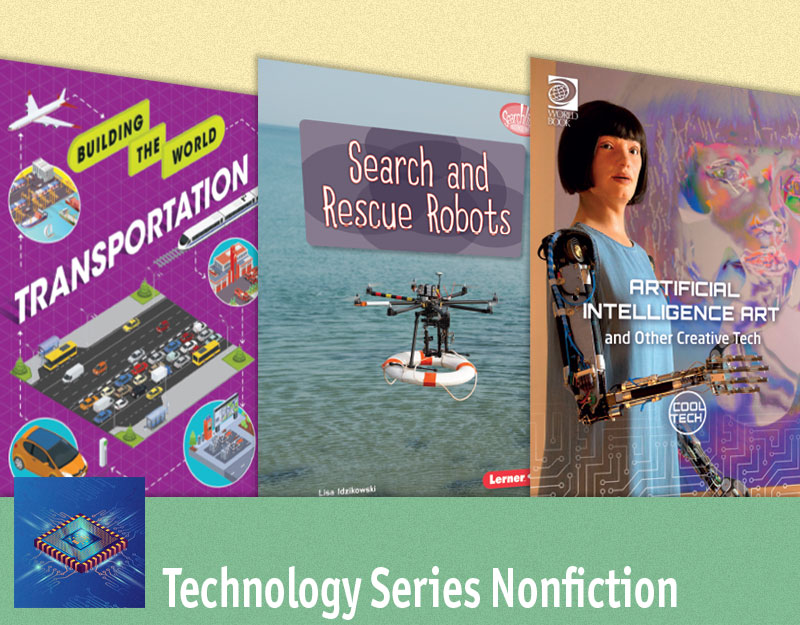
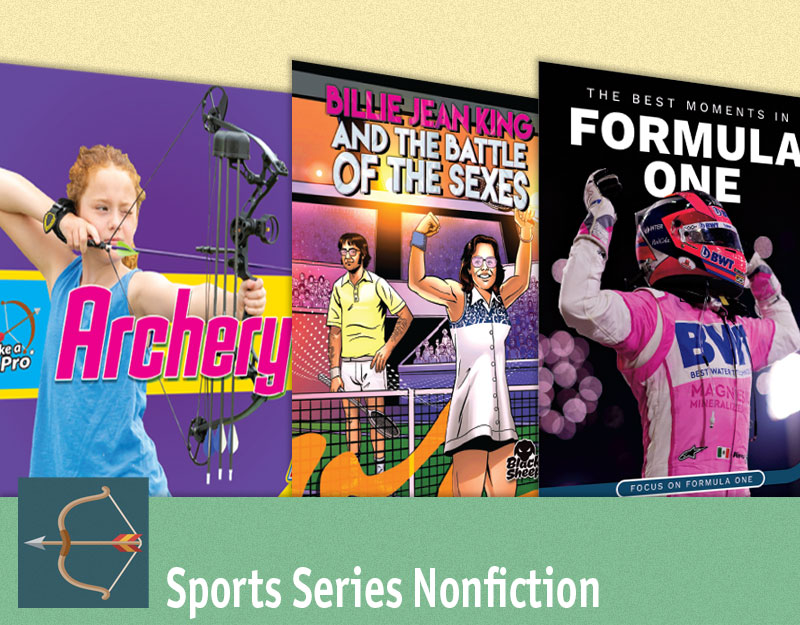
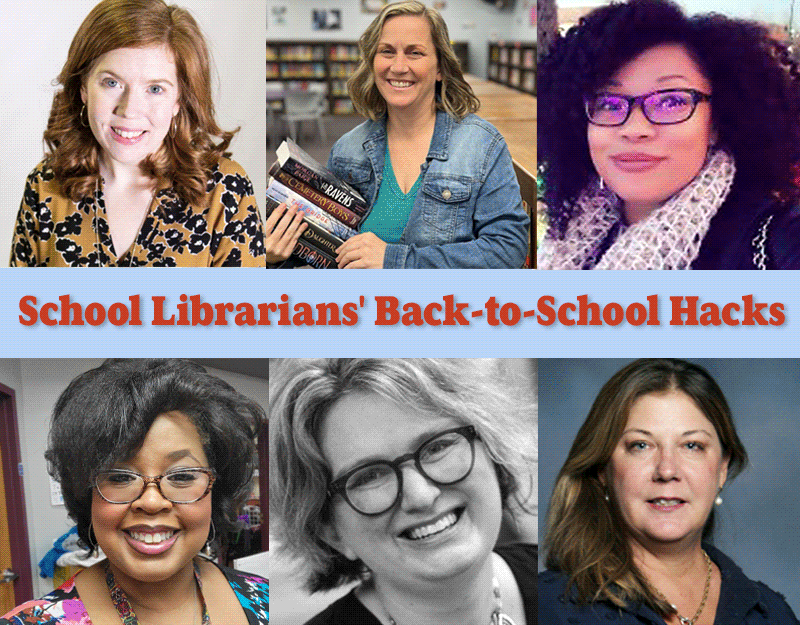
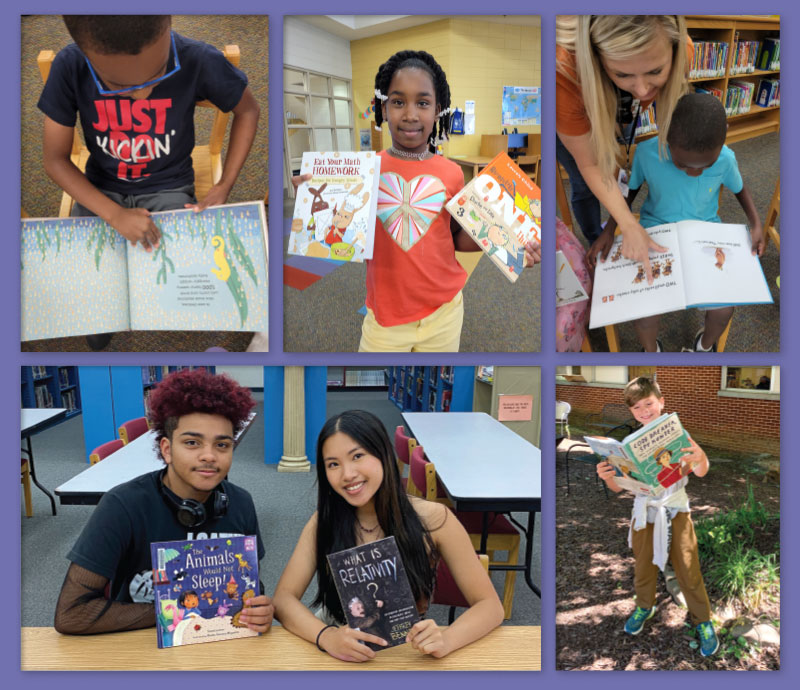
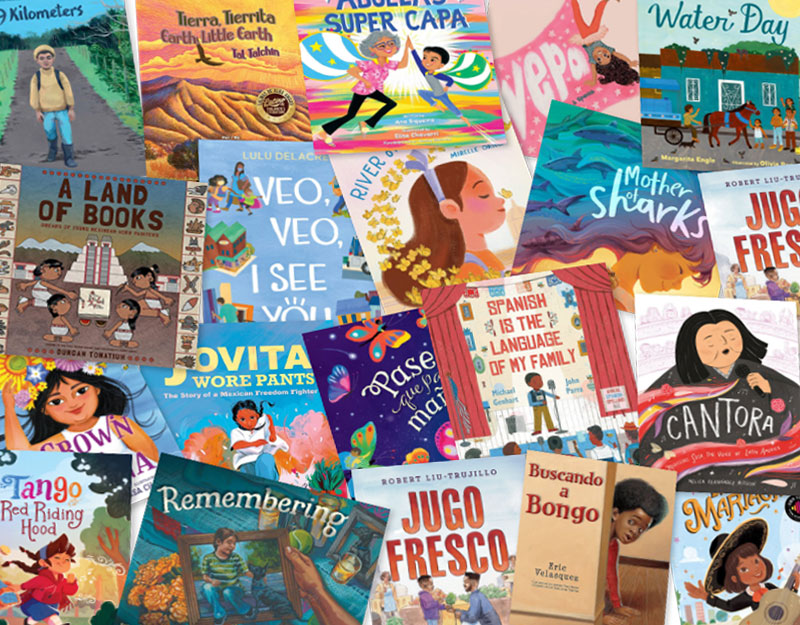
This post is amazing. THANK YOU!!!
I love that you took the time to write this. Many smart and important points in here. Just another reason why I love librarians (and their love of books) so much.
This was a wonderful, level-headed response to the WSJ article. I appreciate that it was level-headed, when so much of Twitter seems to have responded so wildly.
Brilliant post thank you. The articles I've been reading have just been infuriatingly wrong. I'm 22 and haven't read much in the realm of “adult fiction” in ages because I love the stuff I'm finding in YA – but the first time I did read adult fiction I was like 14. The media does a terrible job with these things because “trends” and etc etc make “better” stories.
What an excellent, concise, well-supported, and measured essay (and crash course) on what's true about young adult literature as well as what's not. The misinformation in the media is frustrating and I hope journalists will take note.
Well said. Thank you!
*slow clap*
*stands and applauds* Thank you for this fantastic post!
As a big fan of John Green but a bigger fan of accuracy in journalism, I applaud this respectful and educational article about YA lit. You should submit it to the WSJ as an Op Ed piece. We can't just preach to the choir.
“Contemporary fiction, also at different points in the past twenty years called things like realistic fiction, edgy fiction, the problem novel, etc, has always been a huge part of YA fiction”.
And if you go back 40 years you have S. E. Hinton and Robert Cormier. Contemporary YA is nothing new!!!!
Wonderful article. Thank you.
Thank you!
Thank you! As someone who has dedicated their life to both YA literature and research, I wish that the media would do a better job at both.
I do get the frustration I have seen when it keeps happening over and over again. And thank you!
I think part of the issue may be that we live in such an immediate information age that people aren't given the time they need to properly research and report. As media consumers, we should all be demanding better reporting.
Agreed, very frustrating. And thank you.
Thank you!
*slow but humble bow* Thank you 😀
Thank you!
S. E. Hinton & Robert Cormier – yes! Thank you for your kind comment. I will consider submitting it elsewhere.
Thank you
Thank you for saying what we YA librarians and other connoisseurs of YA lit are thinking with such clarity and elegance.
Great blog post – simply perfect! I hate reading those articles. I haven't even read this one, they just make me furious!
Love this article! I plan to share over and over again when someone makes a snarky comment when I say, “I only read YA fiction, and can't remember when I've read an adult novel”. You are an excellent voice for us fellow YA librarians & media specialists. Thanks for sharing.
Thank you so much for this post! I'm 25, and I decided to a) start writing my own YA story and to b) only read YA this year. Best decisions ever!
Love love love this! Couldnt agree more.
Wow, Karen. This is fantastic! Important information well said. Thank you!!!
Most YA readers are grown ups according to the industry. Kind of makes you wonder what teens are reading seeing as how grown ups are reading their stuff. http://www.publishersweekly.com/pw/by-topic/childrens/childrens-industry-news/article/53937-new-study-55-of-ya-books-bought-by-adults.html
Filled with common sense–thanks!
This comment has been removed by the author.
Thank you
Thank you Kellye
Thank you
Thank you Jennifer
Thank you so much
Thank you and good luck with your writing
Thank you so much
I am familiar with this information. I can tell you that as a librarian, I am always excited to see people reading and the fact that adults are reading YA doesn't surprise me because I enjoy YA. I also know that YA is very popular with teen readers in my community because I help them every day in my library. And as I mentioned, there is that fluidity that happens among all readers, teens will also read MG and Adult fiction. Circulation as a whole has jumped up in my previous two libraries because of the huge success of books like the Twilight series and The Hunger Games series and the Divergent series. I think more people reading is a good thing because I believe in the importance and power of reading. And I know that in school and public libraries across the land there are librarians working hard to meet the needs of teen readers. And I have gone to enough teen book festival events that I have seen thousands of teen readers talking excitedly about the books they are reading. I always want more teen readers, but I have seen the passion of enough teen readers to not have started to wear my worry hat yet. Also, I think it is good that grown ups read their stuff because that makes it that much easier for a grown up to talk to a teen about something that teen cares about and can relate to.
WONDERFUL, thank you. So nice to see the facts I think most true fans of YA know articulately stated in one post that should be baseline reading for anyone attempted to cover YA for the media. (Except that bit about Ellen Hopkins in libraries – *that* was definitely a fascinating new fact to me!)
Yes. This. Should be required reading for all journalists poking a toe in the YA river and then thinking they know how deep it is.
Great insight! Thank-you for writing this!
I read YA literature for three reasons -1) because I am a high school librarian and want to be up on the latest offerings so I can help match good books for my students, 2) because it helps me learn more about what my students are dealing with and relate to, and 3) because there are so many great books that I enjoy and am enriched by. I am quite sure that I will continue to read and enjoy YA even after I retire. Thank you for a wonderful review of YA literature which will help me to better articulate its value to people who denigrate it for being what they consider less than high quality.
Great post, thanks for writing it! I hope some of the journalists out there read it before writing more about YA.
I really wish you'd publish this in the New York Times as an offset to that insulting review. And I cringe when I hear contemporary YA referred to as Greenlit. Just…no.
Excellent, informative and balanced essay. Thanks so much for writing it. Am sharing!
Very, very nice article. This should be the first stop for anyone intending to write about YA. Thank you!
Wow! Thank you.
Terrific and well-said! Thank you!
Thank you so much for writing this. Brace yourself…I'm going to give you a running bear hug ………(((((((hug))))))))
Thank you for this. I have been guilty of some of the offenses you have listed against Teen Lit., but only because I am inundated with manga and vampire and vampire manga…or it seemed like I was. Thank you for reminding me to take a step back and see the whole picture. I am a recent children's-step-into-teen-because-we-are-short-staffed librarian, with an almost 12 yr old, and while I have been reading the likes of Crutcher and Blume and Andersen for years, I have enjoyed going through the 'new' books I get to go through these days. Zombies are pretty funny from a teen perspective. Anyhow…I will keep this handy as a 'gude' for when I backslide.
'guide' – sheesh, shoulda previewed!
Thank you 🙂
And yes, an informal poll several times throughout my career still results in Ellen Hopkins. It's very fascinating.
Thank you
Thank you for reading 🙂
Those are all good reasons to read it. Thank you so much.
Thanks so much for this Jim.
I agree, no to the term Greenlit. And thank you so much for your kind comment.
Thank you for sharing. And for your kind words.
Man, I seriously love Mr. Was. So stoked to see this comment from you.
Thank you.
Thank you so much.
Ooompf – that was quite the hug. LOL
Thank you for your kind words.
I love zombies. A lot. I am a huge fan of the classics, but there is a lot of great new stuff coming out too. Thank you for this comment, and good luck in your new territory.
I love this post in a fierce kind of way. Thank you for writing this.
Thank you so much for your comment. It means a lot.
What a refreshing read. Such a pleasure to read a post about kidlit from someone who actually knows what she's talking about. Thanks, Karen!
I highly recommend This is Not a Test, by Courtney Summers.
Thank you for this informed, considered and intelligent article. As a YA writer, I couldn't agree more!
Such a great article, once again!
I adore THIS IS NOT A TEST and have a whole series of posts dedicated to my zombie love here: https://www.teenlibrariantoolbox.com/2013/06/zombies-all-our-undead-posts-in-one.html
Thank you Matthew!
Thank you Jo.
Thank you. I appreciate it.
I love this so much I want to hug it! Informative, logical, rational, but the passion brimming underneath is so clear. Brava!
Karen, I'll add my thanks, admiration, and congratulations to the many you've received above. I'm also impressed by the fact that you have taken the time to respond to almost all the commenters.
I shared your informative and superbly written article on my blog on blogger–in truth I just started the blog on google (Writers on the Storm) for the purpose of spreading your article around. I'm also going to post it on my other blog on tumblr (Grumpy Old Man Writing) where it nicely fits with Anne Ursu's “The John Green Effect.”
Finally, on an issue that makes me a grumpy old man, thank you so much for writing professionally and with style–your attention to proper punctuation, spelling, and grammar makes your article so much easier and more pleasant to read. And you made your points without having to resort to one expletive! Poor spelling and grammar and extreme profanity may be prevalent in emails, texts, and tweets written by twits but they have no place in professional media written by professionals. It makes me frustrated when I read “twit” style in what should be standard (professional) style; it's becoming widespread and common in an amazing number of (formerly) prestigious web sites. These “writers” have added a third style to standard and colloquial–I call it sub-standard.
Thank you so much!
Grammar has always been a challenge for me to be honest. I am overly fond of commas I fear. My personal goal is to try and be professional, especially with more important topics. So I thank you for this comment because I have read and re-read this post wondering if their should be a comma here or a semi-colon there. And yes, Anne Ursu's piece is wonderful, which is not surprising at all because she is a fabulous author. Now I am going to go check out your blog. Karen
This is amazing!! I am sharing this with everyone I know! Thank you for saying everything I've been thinking and griping about. You rock.
Fantastic post from a fantastic resource — thank you for delineating what so many in our profession have been frustrated by for years.
I have nothing to say except you are an amazing being. You've managed to say everything I've been trying to say for years. I'm going to print this out and carry it everywhere I go so I can hand it out to those who run their mouths without thinking.
Thank you! Finally, a logically valid and responsible response.
Love this article. I've been on the YA is not a genre soapbox for a while. If you're interested, here's a brief write-up I did a while back:
http://victoryediting.com/demographics-vs-genres/
Thank you for writing this incredible–and FINALLY accurate–article on YA literature. So refreshing and wonderful to read something like this from an expert. I wish all journalists had to read this before typing one word on any article about the subject. THANK YOU.
Another huge thank you – from a UK author. How wonderful to read something on YA which actually makes sense. I'm going to share it widely with my librarian friends – and with some journalists over here.
“…do it in a way that doesn't disparage or demean teen readers.” Yes yes yes!
Amy thank you so much!
Yes, it has been a few years now – building up for me. Thank you for reading and enjoying. So affirming.
Thank you Kym.
Thank you
I read your post, good stuff. And thank you for reading mine.
Thank you Sara.
Thank you so much Lucy.
😀 Thank you.
WELL SAID.
I recommend YA lit to adults looking for a good read. YA lit is, in general and in my opinion, so much better written than adult stuff.
Brilliant
GOOD JOB! MAN, is this exactly what needs to be said right now. Very well written, extremely eloquent, to the point, and informative. 10 stars, would read again. 🙂
Do you mind if I reblog this on my WordPress and ping back to you? You don't have a Press This option.
Yes, please feel free to reblog and ping back. And thank you, I appreciate your kind words.
Thank you Debbie.
I am obviously a fan of YA lit 🙂
Great article!!
Well said.
Thank you very much for writing this. As someone who has to often defend her “dark” novels, I really appreciate that section too.